- Home
- Jane Godman
Darkness Unchained Page 14
Darkness Unchained Read online
Page 14
“The modern day has not quite made it as far as Sonskyn Kraal,” I explained to Finty, deciding that, if Ouma was ever going to accept Rudi’s choice of bride, a swift education about boer life might be in order. “We are still waiting for our lives here to be transformed by cars, electricity, telephones and the latest fashions.”
Finty, clad in a pretty, floating dress in shades of soft lemon and grey, listened with interest as I showed her that the lighting at Sonskyn was provided by smelly kerosene lamps, which we exchanged for a candle when going to bed. We made our way to the kitchen, where there was no refrigerator, and we faced a daily battle to keep our food cool inside a meat safe lined with wet sacking. Jabu showed Finty the massive oil-fired range. Cast iron pots, pans, kettles and utensils hung on hooks over the fire. Jabu was delighted when Finty asked questions about regulating the temperature on the range and bobbed his head in approval when she showed that she knew her way around a kitchen.
“Boo always said time with the cook was time well spent,” she said. “And I tagged along wherever she went, so I couldn’t help picking up a few tips on housekeeping.”
Ouma was a wonderful cook, I explained, although she did employ a cook and a kitchen maid, as well. Most of what we ate came from the kraal itself. Ouma favoured the ‘stick to your ribs’ approach to cuisine. Roasts, casseroles, pies, soups and suet puddings boiled in big copper pans. And there was always fruit from the orchard. She made her own bread in the kitchen’s bread oven. Ouma wasn’t a lady who wasted anything. If an animal was killed, she believed it was a sin to throw any part of it away. She used everything. If she didn’t have a recipe, she made something up.
The housemaids who came in at dawn each day were busy washing clothes. A fire had been lit at six thirty that morning under a huge copper tank filled with water. The girls had done their household chores while the water boiled. Then the clothes were put into the copper and boiled. After an hour they were taken out, rinsed in a clean-water trough, put through a wringer and hung on a line where they dried almost instantly in the blazing sun. Later the clothes were ironed with a flatiron, which was heated on the stove. I eyed the delicate material of Finty’s dress dubiously, wondering how it would fare after undergoing the ruthless laundry routine that prevailed at Sonskyn.
We had indoor bathrooms with flushing toilets now, but only a few years ago, the toilets were outside and we used a tin bath before the fire. One of our biggest challenges still was managing the water supply, which had to come from rainwater. There were three water tanks on the property and these were hugely valuable items to any Natal landowner.
“One way to get into Ouma’s good books is to be sure never to waste a single drop,” I explained. “You can always tell a townsperson because he doesn’t know how precious it is. Household water must never, ever be thrown away. It goes onto the garden, where we only grow hardy flowers like Ouma’s darling geraniums.”
Some time later, Ouma came into the kitchen to find Finty rather inexpertly—but with great enthusiasm—plucking a chicken and preparing it for the pot. She wore a blood-spattered apron over her dress. Ouma didn’t speak, but in response to Jabu’s broad smile, she gave a brisk nod.
“That’s the equivalent of transports of delight in anyone else,” I assured Finty.
Hysterical shouting drew my attention away from the kitchen. It sounded like someone was being murdered. Was it possible that Uther was already here? Could we have misjudged the timing of his arrival so badly? I dashed toward the source of the noise to find Nicca, ashen faced, backing slowly out of his bedroom. He raised a shaking finger and pointed it toward the foot of the bed. His breath was coming in short, sharp gasps so that his muscular chest rose and fell in a staccato rhythm.
The snake was coiled about the bedpost. Clearly disturbed by Nicca’s raised voice it had lifted its head and was watching him, its eyes blank black beads devoid of any emotion or expression. Now and then, its tongue flickered as though to warn him of its nervousness. It was a light, reddish-brown colour with lighter stripes running along the sides of its head.
“It’s only a house snake,” I said.
“A house snake?” Nicca repeated incredulously. “You mean it’s a pet?”
I laughed. “No, that’s its name, silly. It’s a brown house snake. Very common and completely harmless. Well, it might bite you if you upset it, but it won’t kill you. But because you’ve frightened it by shouting, it’s could be difficult to catch it now.”
“Oh, I do apologise.” Nicca seemed to have regained some of his equanimity. “I didn’t realise I’d have to consider the sensitivities of the local invertebrates while I was here.”
“You weren’t to know,” I said kindly, stepping into the room.
“Annie, what are you doing?” Nicca asked.
“Getting rid of your unwelcome visitor. Or are you planning on giving up your room to him?”
“Shouldn’t you get Jabu, or one of the stable boys?” He looked nervous.
“No,” I said, stepping forward and grasping the snake behind its head and by its middle. “Because Jabu is almost as big a baby as you about snakes. Remind me to give you a lesson about which ones you should be scared of.” I carried the snake out of the room and encountered Finty as I made my way to the stoep.
“Oh, my goodness, what a beautiful creature. May I touch it, Annie?” She reached out a hand to caress the scaly body.
“You are a very strange girl, Finty. Are you sure you weren’t born a Jago?” Nicca eyed her bloody attire as he spoke. “Lucent in Tenebris and all that.” Those words did it every time. My mind went back to those closed gates with their flowing inscription, to a shadowed glade with a watchful figure and to a pair of amber eyes that had waited centuries to reclaim their legacy.
“I think that’s very unfair,” Finty said, her expression martyred. “After all, I’m not the one carrying a dead snake.”
“It’s not…” But she was right. The snake hung lifeless in my hands.
Chapter Twelve
“What you playing at, Annie-girl?”
I showed Ouma an innocent, questioning face. I wasn’t hopeful. It was impossible to fool my grandmother.
“With the big fella.” She jerked a thumb toward the stoep. Nicca’s broad-shouldered silhouette was dark against the twilight sky.
“I don’t know what you mean,” I said untruthfully.
She snorted. “Don’t give me that, Annie-girl. I hope you know what you’re doing, that’s all. He’s the sort who plays for keeps.”
I sighed. “Ouma, this man who we had to run from—”
“Die slegte bliksem?”
I smiled. Ouma had a way with words. “Yes, the bad bastard. When I first saw him, I fell for him so utterly, so completely, it was like—Oh, I can’t explain it!” She waited. “I can’t just switch that off.”
“You still love him?”
“I don’t know if I do love him. Or if I ever did. I don’t even know what love is because he’s left me so mixed up. But I was intoxicated by him. Almost as if he cast a spell on me and I can’t break free of him, even with all these miles between us. Even after everything he’s done. With Nicca, it’s different. I can’t love them both, can I? I have to sort it out, Ouma.” I tapped my finger against my temple. “In my head.”
“Well, while you’re sorting it out in your head, would you mind not also sorting it out with your bottom half? And maybe keeping your broekies on around the big fella? I don’t want any more little bastards running around the place.”
“Ouma!” I buried my head in my hands.
“Don’t you ‘Ouma’ me, my girl. I’ve got eyes. I’ve seen the pair of you sizzling up the air between you when you look at each other. I was young once, you know. I can remember what it was like.” She grinned at my flaming face. “And, from what I remember, it was very nice. One last thing. If you want my advice, Annie-girl, you’ll forget the bastard and keep the big fella. You don’t come across many like him. When you
do, it’s worth hanging on to them.”
Later, as we sat out on the stoep after dinner, I said to Ouma, “You told me that you don’t want any more little bastards around the place.” Rudi had joined us, since the conversation was about him, as well. In fact, it was more important to him. “But you never did have that. Rudi and I weren’t bastards. And we think you knew it all along.” I watched her face as she gazed up at the highest peaks before answering.
“Ja,” she said eventually. “I did know it. Your ma married her rooinek lordship in Maheking. When she came back here, he went away to carry on fighting. How was I supposed to feel about that? I had a new son, but he was off killing my own people! Then we got word that he was dead. Killed in battle at Diamond Hill, but he was hailed a hero by the British because of the number of boer fighters he murdered! How could we live with that? How could your ma bring you into the world with that stigma? Better to bear the shame of being bastards than the shame of being Engels.”
“Did you rip the pages out of the diary, Ouma?” Rudi asked. “The ones that showed she married him?”
“Ja, and the bottom part of the letter that his brother sent. Because in it he said he was looking forward to meeting his new sister. It was clear from that, too, that they had married.”
“But you never threw the whole letter away?”
“No, but now I wish I had. I don’t know why I kept that part. I suppose it was because it had his name on it and where he was from. Deep down, part of me knew one day you’d ask me questions about those things.” She gave a short, bitter laugh. “I’d forgotten about the letter and the diary when you went snooping in the attic, Annie-girl. Once you’d found them, I knew you’d want to go to England. I know what you’re like. I wasn’t going to stop you, probably couldn’t if I wanted to. Of course, I never thought you’d actually discover who he was.”
I looked across at where Finty and Nicca were sitting together. He was reading, and she was rather inexpertly darning a tear in one of Rudi’s shirts by the light of a kerosene lamp. Did I wish Ouma had thrown that letter away so that we had never gone to Port Isaac and never found Tenebris? I wouldn’t have met Uther and been scorched by the fire of our Jago past. The names of Arwen Jago and Lucia would still be buried in another, untouched, incarnation of myself. But Rudi would not have met Finty, and Nicca would not now be part of my life. Did I want those things undone?
“What about the marriage licence?” Rudi asked, interrupting my thoughts. “And our birth certificates? Those documents are the only things that could prove I am the real heir to the Athal title.”
“Oh, I still have those,” Ouma replied casually. She looked at our incredulous faces. “What, you think I am stupid enough to destroy them, the only proof we have of who you are?”
Until now, I hadn’t asked Rudi the obvious question. “Do you want it, broer? Do you really want Tenebris?”
There was a faraway look in his eyes when he answered. “Yes, I do. It felt like home to me, Annie. I think the visions we had of the castle and of Uther were a strange, subconscious signal that I belong there.” I wondered briefly what message they held for me. “I am the Earl of Athal. It’s my duty to claim the title.” There was a pride in his voice I had not heard before.
“It may not be easy,” I said. “Uther won’t fight fair.”
A smile flickered across his fine features. “But we are the true Jagos, Annie. You and I. Surely when it comes to fighting dirty, no one—not even Uther—will be able to outdo us.”
We had been at Sonskyn for four weeks when Rudi and Finty were married. The wedding was a quiet ceremony in the little church in Ladysmith.
“You are the Countess of Athal. You came next after Bouche. Just think how proud she would be to know that.” I kissed Finty on the cheek to congratulate her, and she turned to me with shining eyes.
“I am married to the man I love. That’s all that matters,” she replied, gazing up at Rudi. “Oh, Annie, I hope that one day soon you will be as happy as I am right now.” I thought of how I had believed that I would marry Uther, that I would be the next Jago bride gazing up at her groom with that rapt expression. Within the onion-like layers of my emotions, relief and loss went to war. I had been cheated of my fairy tale ending. Anger and resentment left their bitter tang in my mouth. Carefully, I schooled my features back into a smile.
The vehicles at Sonskyn were utilitarian rather than elegant, but the old, open horse-drawn carriage that used to take me to school and transport us to church on Sundays was still going strong. The stable boys had polished it until it shone, and I decorated it with streamers and flowers. Rudi and Finty rode with Ouma in the carriage to the kraal while Nicca and I made do with the farm truck. As Jabu manhandled our vehicle through the dusty streets of Ladysmith, I heard a child’s agonised cry.
“Ah, no, Nkosi Piet.…No! No more!”
Looking over my shoulder, I saw a huge boer systematically beating a young Bantu boy, who looked to be about twelve years old.
“Stop!” I leaped down from the vehicle before it reached a halt and stormed over to the man, catching hold of his arm before his next downward blow could connect with the boy’s skinny body.
The boer looked around in surprise, and the child took the opportunity to scurry behind me.
“You better let go of me quick smart, Missie van der Merwe, or the next one is for you.” My charming acquaintance warned me in a growl. I knew Piet Smit. He had a hunting shack half a mile from Sonskyn and I had been there once or twice with Ouma to buy biltong, a dried meat he cured himself using an old voortrekker method.
“What a big, brave man you are” I faced him with my hands on my hips. “Little boys and women. Your ma would be so proud of you, Meneer Smit.” My temper, always quick, came to the boil so fast that it took even me by surprise. Looking back later, I decided that my thoughts of Uther and the wedding that was not to be had already ignited a spark. Glaring at Smit, I stepped closer, so that I could see the stubble on his chin and the red roadmap of veins alcohol had drawn on his cheeks. He opened his mouth to speak, spittle flecking the corners of his mouth. And then he stopped. His eyes narrowed and he glanced quickly from one side to the other as though seeking an escape route. There was an audible click as he swallowed nervously.
“Don’t,” he said. I recognised the look in his eyes. As incredible as it seemed, I knew he was afraid of me.
Out of the corner of my eye, I saw Nicca alighting from the truck. “Don’t what?”
“Don’t look at me like that.”
I maintained my stance and was amazed when he lowered his eyes. The man was a notorious bully. But then I decided that his nervousness had nothing to do with the way I looked at him and everything to do with the size of Nicca’s approaching figure. Piet Smit might be a big man himself, but Nicca matched him. The difference was that Nicca moved with a lithe, athletic grace that told a story of sleek muscle and honed strength. I suspected we all knew any contest would be an uneven one.
Piet held up his hands in a conciliatory gesture and said in Afrikaans, “Baaie dankie, meneer.”
I regarded him in astonishment. What was he thanking Nicca for? They had never met before. Of that I was certain. Yet he was hailing him as though Nicca was his rescuer, not the young Bantu’s. Smit took a step away from me and toward Nicca, and his expression was one of abject relief.
“The lady is mistaken. I meant no offence. The boy belongs to me.…He’s a lazy whelp. He needs a reminder about who is the boss every now and then.”
The boy, having eyed up the situation, decided to switch his allegiance and went to hide behind Nicca. “My good man,” Nicca said in clipped English tones. “I have no idea what you just said, but I don’t like you and I think you should be on your way now.”
Piet looked nonplussed, so I told him, “He said voetsek.” He glared at me with mingled fear and dislike.
“Meneer, the boy is mine.…” he repeated in ponderous English.
“You mean he’
s your son?” I asked. I knew the words would enrage him.
His face went a nasty shade of puce. “Nie, heks! No, witch!” His eyes slithered quickly from my face to Nicca’s. “Pardon, I meant no offence. But you think I’m that desperate? That I would lie with a Bantu woman? The boy is my property.”
“You cannot own him. He is a human being, not a dog.”
“He is not as useful or as valuable as a dog. He is black—”
I took another hasty step toward him, and he stumbled back. Nicca caught hold of my arm. “Get the boy into the truck, Annie. I’m sure I can persuade this gentleman to see reason.” When I didn’t move, he gave me a little shove. “Go!”
I never knew what Nicca said to the big Afrikaner. It was brief and quiet, but Piet’s face flushed to the colour of beetroot before, without replying, he shambled away. Nicca came back and joined me in the truck. The boy, whose name was Kami, eyed us with interest and awe.
“Won’t Ouma mind us turning up with an uninvited guest?” Nicca asked.
“No, he can come and work in the stables,” I said. My anger was gone now. Momentarily, I forgot to be discreet and rubbed my cheek against his sleeve. He dropped a kiss onto the top of my head. As the truck rumbled into life, I caught a glimpse of Smit’s sullen features as he watched us from a shady corner of the street. “We can always use an extra pair of hands, and he will not be beaten at Sonskyn, that much is for sure. He will have a roof and a bed and be paid for the work he does.”

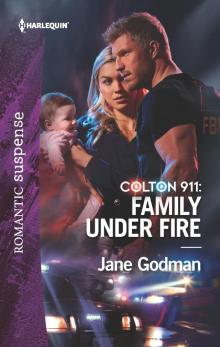 Family Under Fire
Family Under Fire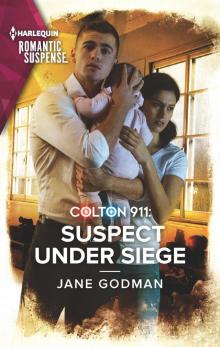 Colton 911--Suspect Under Siege
Colton 911--Suspect Under Siege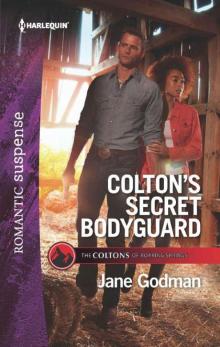 Colton's Secret Bodyguard (The Coltons 0f Roaring Springs Book 4)
Colton's Secret Bodyguard (The Coltons 0f Roaring Springs Book 4)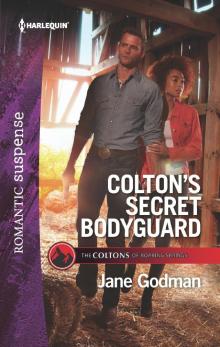 Colton's Secret Bodyguard
Colton's Secret Bodyguard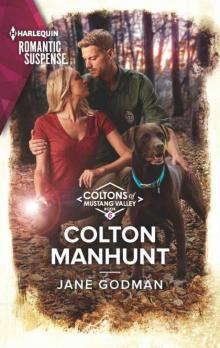 Colton Manhunt (The Coltons 0f Mustang Valley Book 6)
Colton Manhunt (The Coltons 0f Mustang Valley Book 6)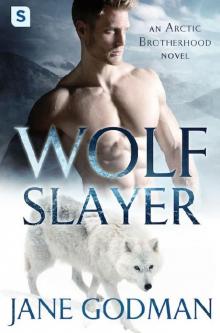 Wolf Slayer
Wolf Slayer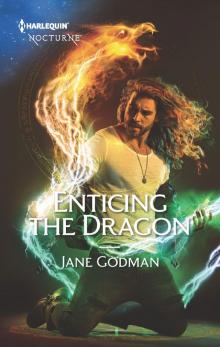 Enticing the Dragon
Enticing the Dragon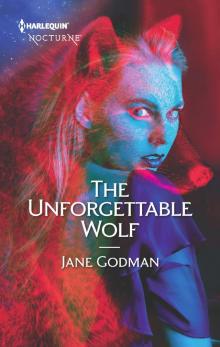 The Unforgettable Wolf
The Unforgettable Wolf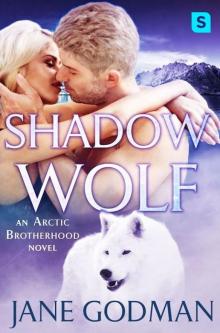 Shadow Wolf: A Shifter Romance (Arctic Brotherhood, Book 2)
Shadow Wolf: A Shifter Romance (Arctic Brotherhood, Book 2) Harlequin E Shivers Box Set Volume 3: Valley of NightmaresHis to PossessThe Girl in BlueThe Ghosts of Cragera Bay
Harlequin E Shivers Box Set Volume 3: Valley of NightmaresHis to PossessThe Girl in BlueThe Ghosts of Cragera Bay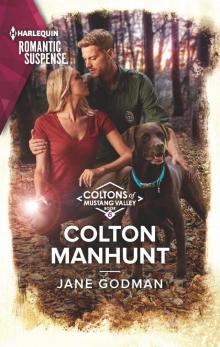 Colton Manhunt
Colton Manhunt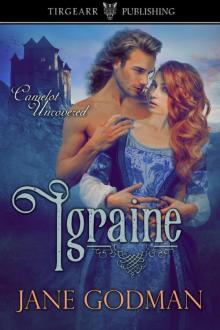 Igraine
Igraine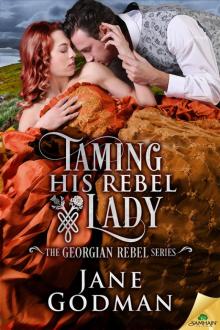 Taming His Rebel Lady
Taming His Rebel Lady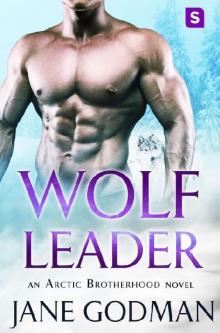 Wolf Leader: A Shifter Romance (Arctic Brotherhood, Book 6)
Wolf Leader: A Shifter Romance (Arctic Brotherhood, Book 6)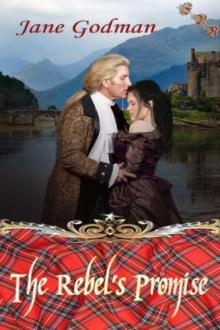 The Rebel's Promise
The Rebel's Promise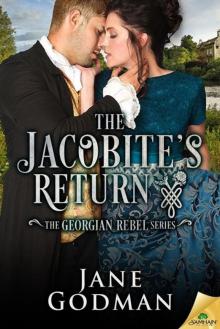 The Jacobite's Return (The Georgian Rebel Series)
The Jacobite's Return (The Georgian Rebel Series)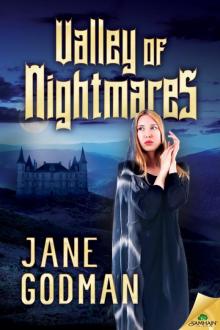 Valley of Nightmares
Valley of Nightmares Colton and the Single Mom
Colton and the Single Mom A Kiss for a Highlander
A Kiss for a Highlander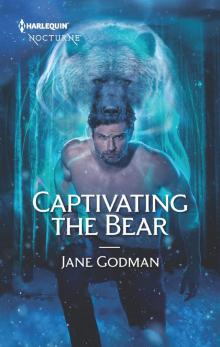 Captivating the Bear
Captivating the Bear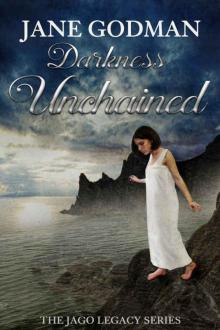 Darkness Unchained
Darkness Unchained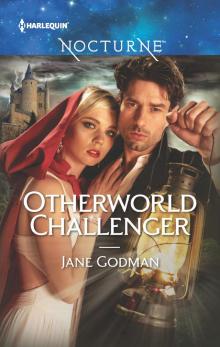 Otherworld Challenger
Otherworld Challenger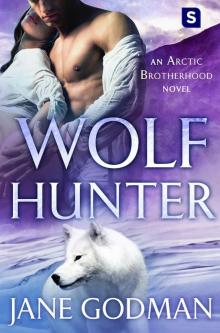 Wolf Hunter
Wolf Hunter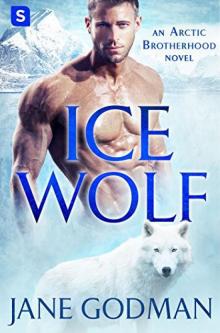 Ice Wolf: A Shifter Romance
Ice Wolf: A Shifter Romance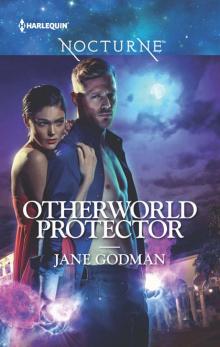 Otherworld Protector
Otherworld Protector Covert Kisses
Covert Kisses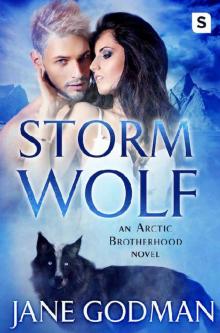 Storm Wolf
Storm Wolf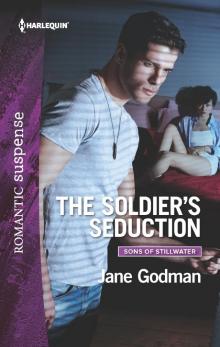 The Soldier's Seduction
The Soldier's Seduction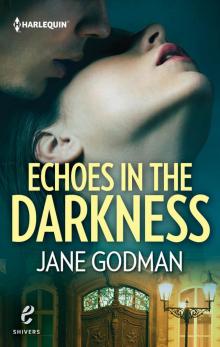 Echoes in the Darkness
Echoes in the Darkness